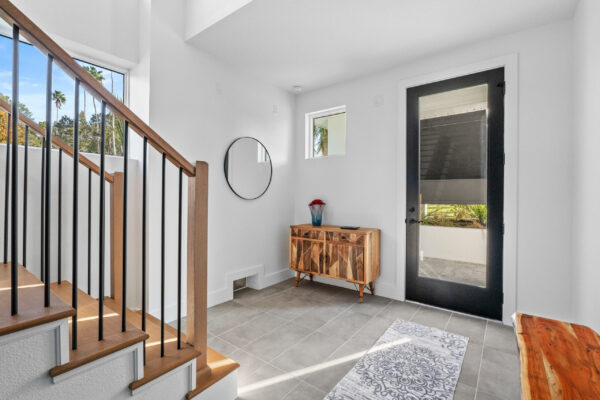For most homeowners, a home is more than just a place to live, it’s also one of the most valuable financial assets you’ll ever own. Over time, as you pay down your mortgage and your property increases in value, you’re building something called home equity. Understanding how home equity works can help you make informed financial decisions, from refinancing your mortgage to funding major life goals like home renovations or college tuition.
Whether you’re a first-time buyer or have owned your home for years, knowing how to manage and maximize your equity is key to protecting your investment and planning for the future. Here’s a clear, up-to-date guide to help you understand what home equity is, how it works, and how you can make the most of it.
What Is Home Equity?
Home equity is the portion of your home that you truly “own.” It represents the difference between your home’s current market value and the amount you still owe on your mortgage. In simpler terms:
Home Equity = Home’s Market Value – Remaining Mortgage Balance
For example, if your home is worth $500,000 and you owe $300,000, your equity equals $200,000.
This equity builds gradually over time as you pay down your mortgage and as your property appreciates in value. It’s an important financial asset because it contributes to your overall net worth, and it’s an asset you can tap into when needed.
How Home Equity Grows Over Time
The good news is that home equity tends to grow in two main ways: through your own payments and through market appreciation.
1. Paying Down Your Mortgage
Every mortgage payment you make reduces the principal balance of your loan, which increases the share of the home you own outright. The longer you’ve owned your home, the faster your equity can grow, since more of each payment goes toward the principal instead of interest.
2. Property Value Appreciation
If your home’s value increases, whether due to market trends or home improvements, your equity grows even faster. For example, if your home appreciates from $500,000 to $550,000 and your mortgage balance is $300,000, your equity increases from $200,000 to $250,000.
3. Renovations and Home Improvement
Strategic upgrades can also boost equity. Remodeling a kitchen, adding outdoor living space, or finishing a basement not only improves comfort but can increase resale value. Just be mindful to invest in projects that align with your neighborhood’s market value.
Why Home Equity Matters
Home equity is more than just a number – it’s a powerful financial tool. Here’s why it’s so important for homeowners to understand:
Increases Your Net Worth:
As your home equity grows, so does your overall financial stability. Your home becomes an appreciating asset rather than a fixed expense.
Acts as a Financial Safety Net:
In times of unexpected expenses, home equity can provide access to funds through loans or refinancing and they are often at lower interest rates than credit cards or personal loans.
Supports Long-Term Goals:
You can use home equity to fund renovations, education, or even as a down payment on an investment property.
Improves Borrowing Power:
Strong home equity can help you qualify for better loan terms and refinancing options.
Ultimately, home equity gives you financial flexibility and helps you build wealth over time, which makes it one of the greatest benefits of homeownership.
How to Access Your Home Equity
When the time comes to use your home equity, there are several ways to access it. Each option has its own advantages, depending on your needs and long-term financial goals.
1. Home Equity Loan
A home equity loan allows you to borrow a lump sum of money against your equity. You’ll repay it in fixed installments over a set term, similar to your primary mortgage. This option is great for large, one-time expenses such as major renovations, medical bills, or debt consolidation.
Pros: Predictable payments, fixed interest rate, and straightforward terms.
Cons: Adds another monthly payment and uses your home as collateral.
2. Home Equity Line of Credit (HELOC)
A HELOC functions more like a credit card. You’re given a revolving line of credit based on your home’s equity and can borrow as needed during a “draw period.” Payments are typically flexible, and you only pay interest on the amount you use.
Pros: Flexible borrowing and repayment options.
Cons: Variable interest rates may increase over time, and overborrowing can create risk.
3. Cash-Out Refinance
With a cash-out refinance, you replace your current mortgage with a new one for a higher amount—then receive the difference in cash. For example, if you owe $250,000 on a $400,000 home, you could refinance for $300,000 and receive $50,000 in cash.
Pros: Consolidates loans into one payment, often with better rates.
Cons: Extends your mortgage term and resets your repayment timeline.
When Should You Use Your Home Equity?
Using home equity wisely can be a smart financial move, but it’s important to have a clear purpose and plan. Some good uses of home equity include:
- Funding home improvements that add value
- Consolidating high-interest debt into one manageable loan
- Covering education or major medical expenses
- Investing in another property or business opportunity
However, avoid tapping into your equity for non-essential purchases or short-term needs. Because your home serves as collateral, borrowing irresponsibly can put your property, and your financial security, at risk.
Risks and Considerations
Before borrowing against your home’s equity, make sure you understand the potential downsides:
- Market Fluctuations: If home values decline, your available equity could decrease.
- Debt Management: Adding another loan increases your financial obligations.
- Foreclosure Risk: If you can’t repay a home equity loan or HELOC, you risk losing your home.
- Closing Costs: Refinancing or new loans often come with fees that can add up.
Always consult with a trusted lender or financial advisor to determine which option makes sense for your situation.
How Custom Homeowners Can Build Equity from Day One
If you’re planning to build a new custom home, you have a unique opportunity to build equity strategically from the start. By choosing a reputable builder, selecting a desirable location, and investing in quality construction and design, your home’s value can appreciate immediately upon completion.
Here’s how to set yourself up for strong equity growth:
- Select a Prime Lot: Location remains the biggest driver of long-term home value.
- Choose Energy-Efficient Materials: Low maintenance and eco-friendly features appeal to modern buyers.
- Design for Function and Resale: Create spaces that work for your lifestyle but also attract future buyers.
Work with a Trusted Builder: Covenant Homes designs and builds custom homes with craftsmanship and quality that stand the test of time, protecting your investment for years to come.
Build Wealth, One Brick at a Time
Home equity is one of the greatest financial advantages of homeownership. By understanding how it works, and how to manage it wisely, you can turn your home into a valuable, wealth-building asset. Whether you’re paying down your mortgage, upgrading your space, or planning your next move, every decision contributes to your long-term financial success.
At Covenant Homes, we believe building a home is about more than just walls and windows, it’s about building your future. From selecting the perfect lot to crafting a design that fits your lifestyle, our team is here to help you create a home that grows in value and meaning year after year.
Ready to Build the Home of Your Dreams?
Contact Covenant Homes today to learn more about our custom homebuilding process in North Georgia and Florida. Let’s design a home that’s not only beautiful—but built to build equity for generations to come.

















